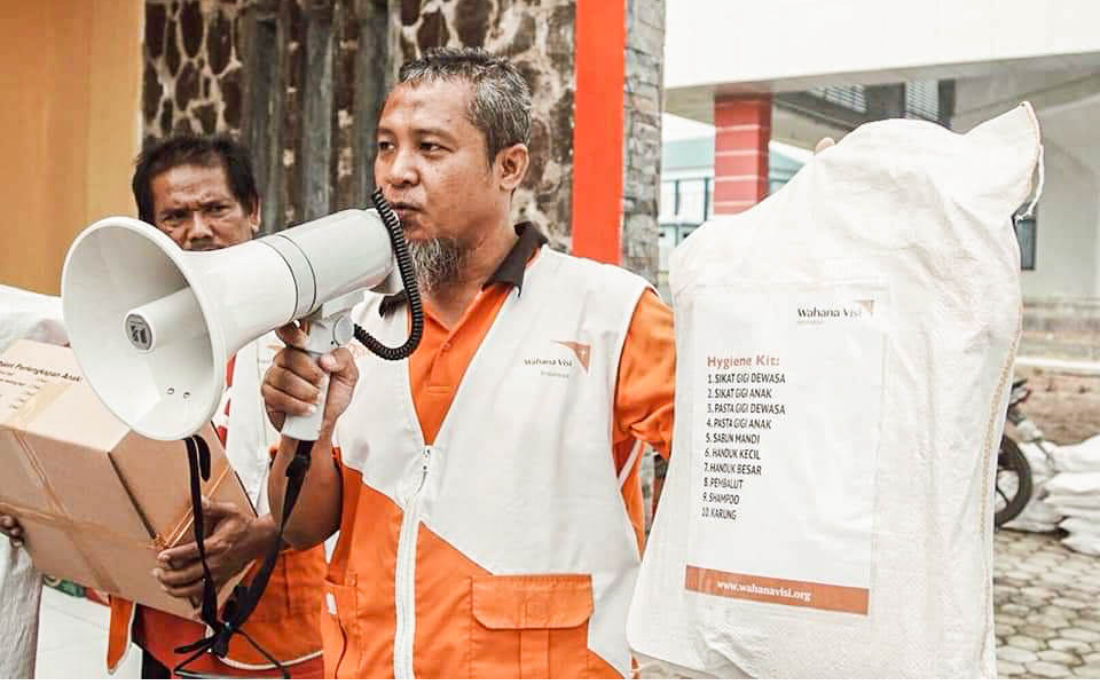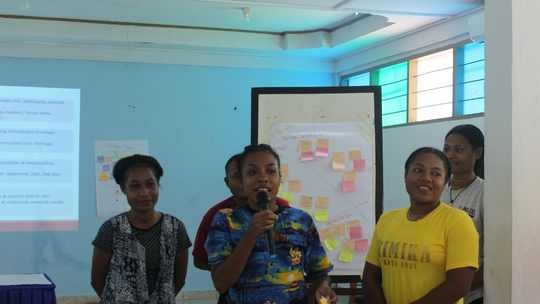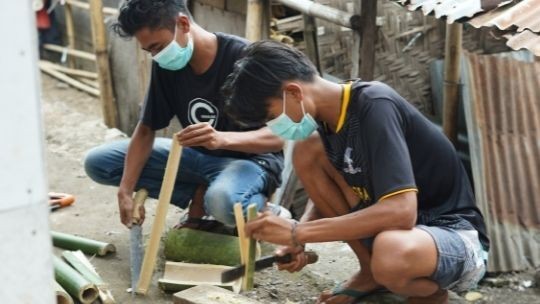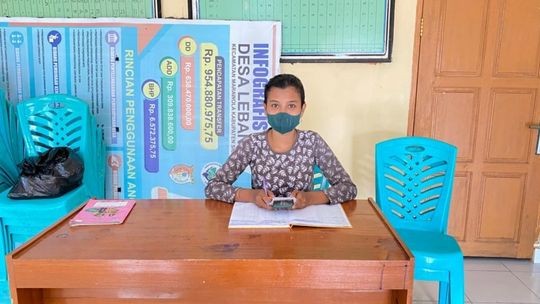Ronny Ichwan: The Man Behind WVI’s Emergency Responses

Working on humanitarian missions, that is what Ronny Ichwan's guiding principle is to continue serving and giving his life to people in need. Ronny joined WVI about 25 years ago. Beginning as a volunteer in a WVI-assisted neighbourhood, Ronny became involved in humanitarian work.
"There used to be a programme to improve the economic situation after monetary crisis hit Indonesia. People worked together to clean up their neighbourhoods, improve infrastructure in their villages, and the wages were replaced with rice. That's where I helped, because World Vision is affiliated with the village, so I joined as a volunteer," said Ronny. From there, WVI, which was still called World Vision at the time, saw Ronny's potential. In 1999, Ronny joined WVI in the Surabaya Emergency Operation Plan team as a field staff member. Six months after Ronny joined WVI, a humanitarian tragedy - a religious conflict - occurred in Ternate, North Maluku.
"It was an extraordinary human tragedy. Around 2000, a tragedy broke out there that became one of the national and international tragedies. World Vision developed a programme there, an emergency response. I was chosen to be the staff who went there," he said. This moment defined Ronny's career. He served as a first responder and over time, Ronny began to be entrusted to continue serving in various emergency responses.
A significant change occurred in Ronny's life when he was assigned to go to the field, directly participating in distributing humanitarian aid to dangerous conflict areas. "At first I was shocked! My experience working for profit organisation was typical nine to five office workhours. But with the rhythm of WVI at that time and the emergency context, it was also challenging,". He still remembers the situation in Ternate at that time. "The situation was still war. In the middle of the night there was the sound of electricity poles being hit, it was a tense atmosphere. Seeing troops crossing the island carrying weapons was a daily sight," he says. Serving as a first responder is not something everyone can do. However, dealing with dangerous situations is something Ronny chooses to do when many people shy away from it. He takes this risk because he feels that humanitarian workers can help ease the lives of children and adults who are being threatened by disasters.
"Learning by doing," is what Ronny applies when working on humanitarian missions. In disaster situations, work often starts at dawn and finishes in the afternoon. It's only in the evenings, when things are more relaxed, that he can develop himself with assistance from staff at WVI's national office in Jakarta. "At that time, I really went from field staff to programme coordinator. From there, it became learning by doing," he said.
Not only conflict, Ronny was also involved in various natural disaster responses. Starting from the Aceh earthquake and tsunami in 2004, the eruption of Mount Merapi in Yogyakarta in 2006 to the earthquake in Padang, West Sumatra, he participated with other WVI teams. From these various disaster responses, Ronny had a unique experience in Aceh.
Ronny spent five years in Aceh, helping survivors rebuild their lives. He also created an activity to help children's psychological recovery. "The name of the activity is Negeri Anak Madani. They recreated a country led by children, filled with children. There are various small simulations carried out as an illustration if children's rights are fulfilled. This is a picture of a small country that prioritises children," he said. Seeing the children who survived the Aceh earthquake and tsunami return to a normal life was one of Ronny's most memorable and transformative moments.
Ronny's enthusiasm and spirit in working as a disaster response team deserves a thumbs up. When not many people are willing to jump into a situation like this, Ronny has the heart and passion to help the survivors.
The call to work in the Disaster Risk Management sector grew stronger when Ronny served as Area Programme Manager for Parigi Moutong, Central Sulawesi. "It was a completely different approach, different situation, and all kinds of things. In emergency response, the situation is difficult, access is limited and speed is required. When I moved to development, where the work rhythm is manageable, the atmosphere was very different from emergency," Ronny explains. After four years as AP Manager, Ronny realised that his real passion was working in a dynamic environment.
For 25 years, Ronny has devoted himself to assisting children and carrying out humanitarian missions. WVI became his choice because this organisation feels like home, and the growth in faith that Ronny felt despite his different beliefs. "The sense of togetherness is very important. Mutual support, take and give is quite high at WVI. Maybe if you work elsewhere, the culture is not like at WVI. With me being of a different faith, but I can be fully involved. I can work wholeheartedly, build spiritual faith, that's what I love about working at WVI," he said.
According to him, humanitarian action is not limited by race, ethnicity, culture or religion. As long as what is done is for humanitarian missions, the work has no limits. "There are offers in other organisations, but I am convinced that WVI is still the best home for spiritual development, capacity, and career in personal or social life, that I found here," he continued.
Ronny also feels a major transformation has taken place in him because WVI teaches the importance of being a role model. "In this job, we are also role models, not only during working hours but also in our daily lives,". He takes this value as a guide in her life. "24 hours as long as we are WVI staff, we are role models. So our life values is also important anytime, anywhere. Not just in socialisation or training," he concluded.
Ronny is a great figure who has the passion and heart to see transformation happen in the lives of children and communities he works with. This has also influenced Ronny to be more enthusiastic in striving for that transformations.
Author: Amarissa Kayla (intern in Marketing Communications unit)
Editor: Mariana Kurniawati (Communication Executive)



